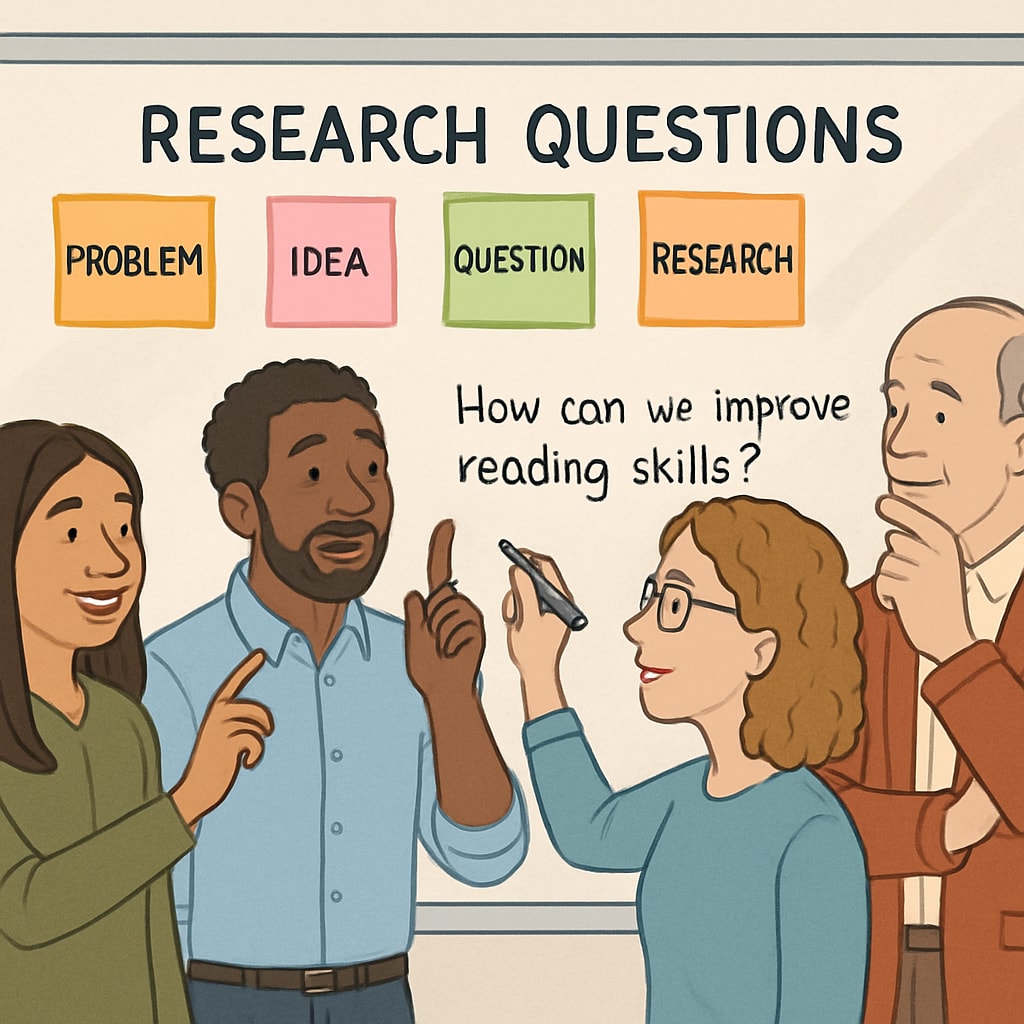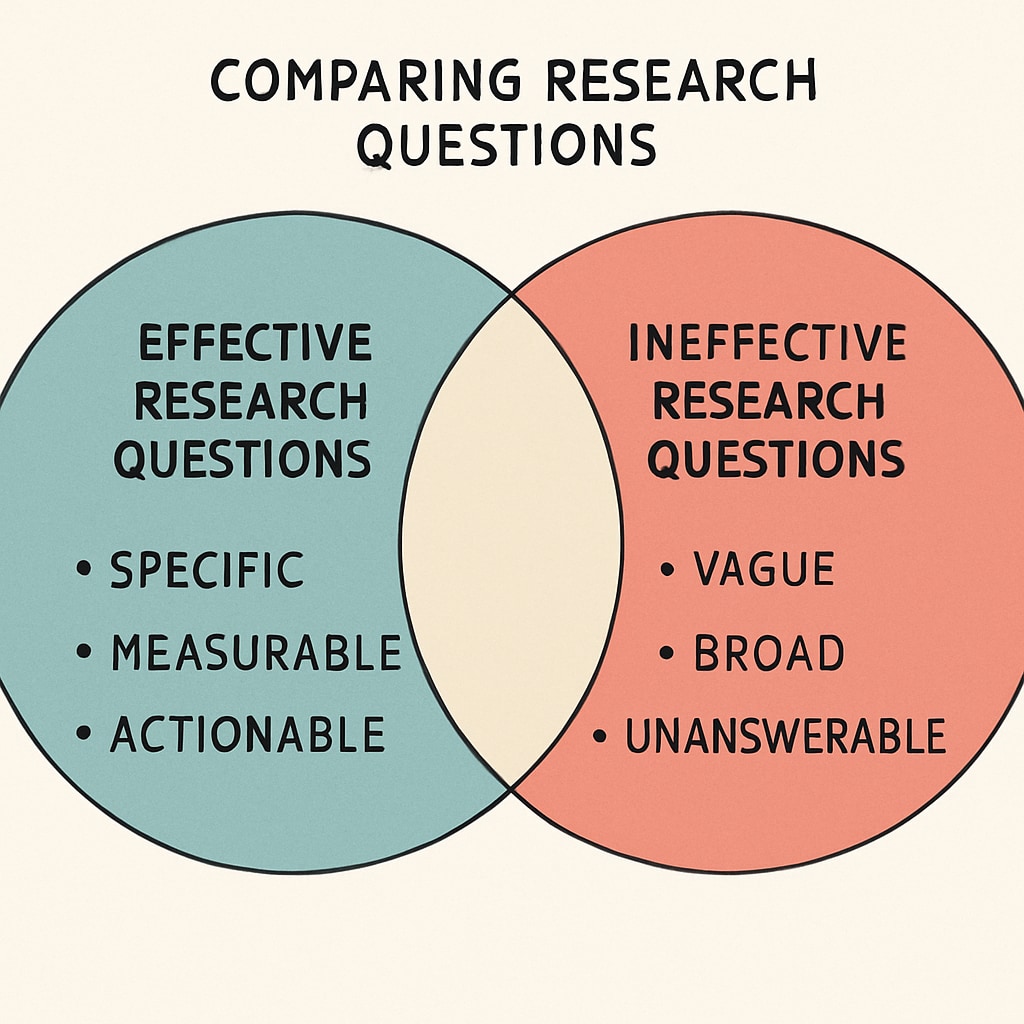Developing precise research questions, formulation methods, and seeking academic assistance are foundational steps in K12 educational research. A well-crafted question directs the entire investigation, influencing methodology, data collection, and ultimately, the study’s impact. According to the Research Question Wikipedia entry, effective questions should be “answerable, specific, and connected to existing knowledge.” This guide presents a structured approach to transform broad educational concerns into research-worthy inquiries.
The Importance of Question Framing in Educational Research
Quality inquiry begins with recognizing genuine knowledge gaps in classroom practice or learning theories. For example, rather than asking “Does technology help students?”, refine it to “How do interactive whiteboards affect 7th-grade math engagement in Title I schools?” This specificity:
- Defines measurable variables
- Identifies the target population
- Connects to practical implementation

Five-Step Framework for Developing Study Questions
The scientific method provides a foundation for systematic question formulation. Adapt this process for educational contexts:
- Observation: Identify recurring challenges in your teaching environment
- Literature Review: Examine prior studies to locate unexplored angles
- Stakeholder Input: Consult colleagues, students, and administrators
- Question Prototyping: Draft multiple versions using different frameworks
- Validation: Assess feasibility through pilot testing
Avoiding Common Formulation Errors
Many researchers encounter these pitfalls when developing inquiry statements:
- Overly broad questions: “How does social media affect learning?” lacks focus
- Dual-question traps: “What impacts reading scores and parental involvement?” addresses two separate issues
- Unmeasurable concepts: “Are modern teaching methods better?” lacks operational definitions

Practical tip: Use the FINER criteria (Feasible, Interesting, Novel, Ethical, Relevant) when evaluating potential questions. Educators should particularly emphasize relevance – the best K12 research questions emerge from genuine classroom needs rather than abstract academic interests.
Remember that research question formulation is iterative. As noted in recent ERIC studies, 68% of education researchers revise their primary question during literature review. Allow flexibility while maintaining academic rigor throughout the inquiry process.


